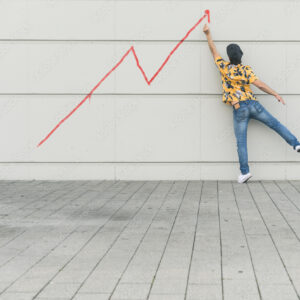Cases
& Insights
Real economic growth: between hope and disbelief.

The National Institute of Statistics issued a press release on May 17 current year, announcing that Romania’s economy grew by 5.2%, in real terms, in the first quarter of 2022 compared to the previous quarter.
Those who live in Romania, those approximately 19M inhabitants, do not perceive this increase by increasing their standard of living, on the contrary, they feel how from one day to the next, the prices explode and their standard of living decreases.
On Wikipedia, economic growth is defined as:
“Economic growth is the positive change in the production of goods and services in an economy over a given period, generally long. The most widely used indicator to measure growth is gross domestic product (GDP).
Measuring economic growth is done by calculating the growth rates of the world’s GDP in terms of GDP (at the market value of all final goods and services produced over a period determined domestically, considering inflation) or its use (on expenses).”
According to the methodological specifications, the growth estimation was performed based on the FLASH method / estimation. The method itself involves giving up accuracy based on an incomplete set of information to save time (publishing 40-45 days from the end of the reference quarter).
In Romania it was stated that “the same European methods” were used.
In the calculation of economic growth, we did not see that the influence of inflation was considered. Moreover, on the website of the National Institute of Statistics it is mentioned that market prices are used, and according to the methodological specifications, “gross value added at basic price” is used – similarly. According to Mediafax, inflation in the first quarter of 2022 was 4%.
So, even if the Gross Domestic Product (GDP) increased (in value) by 5.2% (assuming the margin of error for estimating FLASH is not very large), we conclude that to establish real growth, we must eliminate inflation.
We all know that countries around the world have recently begun to inject money into their economies, which has led to global inflation. When money is printed, the value of money decreases and consequently goods and services become more expensive – generating inflation. Inflation reduces the value of the currency over time.
How much I would like that Governments and State’ Institutions to communicate the truth to the people, no matter how gloomy it is. But for governments to get new loans and make more credits, they have a swollen GDP, so the reporting base for the budget deficit is growing. The budget deficit increased by almost 10 billion lei in March, reaching 1.67% of GDP after the first three months of the year, according to data published by Wall-Street.
Nobody knows exactly what the economic growth was, but based on the data provided, I estimate that it was not higher than about 1.2% compared to the previous quarter.
